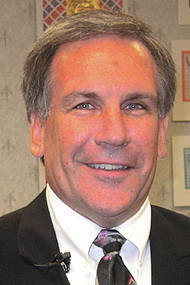
On Nov. 10, 2019, the iconic children’s program, “Sesame Street,” will celebrate the 50th anniversary of its premiere on public television. If you have been a child or had a child in the last 50 years, chances are great that the program has graced your television set. By 2018, it was estimated that 86 million Americans had watched Bert, Ernie, Kermit, Big Bird, and the rest of the “Sesame Street” gang teach our young children valuable life lessons, making it the most widely viewed children’s educational television program in the world.
“Sesame Street” was the first such program to develop a curriculum based on solid research on how little people learned. Experts created educational goals and a well-conceived curriculum to shape its content, and, even more importantly, the show never stopped evolving as more was learned about child development.
“Sesame Street’s” goals were pretty simple. It wanted to use the hypnotic effect television holds over human beings, especially children, in a positive way. Its creators wanted to help better prepare preschoolers, particularly those from low income families, for school. As the program evolved, it focused not only on a child’s academic growth, but also on his or her social, emotional, and behavioral development. Its creators realized that those skills were as important to success as academic knowledge, which led to programs showing children how to develop relationships, how to be tolerant of others, how to manage their emotions, how to solve problems, and the importance of behaving ethically.
You may have noticed that at no time has the show ever equated educating kids to incessantly testing them, as our politicians have done. It hasn’t done that because there was no research to suggest that it was an appropriate thing to do.
Instead, the program remained dedicated to helping the whole child develop by focusing on his or her emotional, social, and behavioral skills, as well as his or her academic growth. It did this because its creators knew those skills were every bit as important as academic knowledge in achieving success.
Meanwhile, our political “leaders” have done just the opposite with their laws. They have, for all intents and purposes, determined that the only thing that matters is a child’s academic prowess and performance on tests, and they have done this with no research to support their approach.
Interestingly enough, one of the reasons the show was created five decades ago was because the research showed that children from disadvantaged economic environments were beginning school woefully lacking in the skills necessary to allow them to be successful. It was well established that when children were ill-prepared to begin school, they started out well behind those better prepared in a multitude of areas, and they were often unable to close the gap.
Which is exactly what the research shows today, despite the fact that dozens upon dozens of politically motivated laws have been enacted that promised to help close the achievement gap by focusing only on academic achievement.
I wonder how it feels to be outsmarted by Big Bird and Miss Piggy.
Additionally, “Sesame Street’s” creators never pretended that it could replace poor or absentee parenting. It only hoped to supplement the skills that were (hopefully) being taught at home. It even touted the importance of “co-viewing” its programs, which is when parents or older siblings watch the program with a small child to fill in the gaps as to what may confuse them about the lessons they are watching.
What it never did was pretend that it was acceptable for parents to have children, then wash their hands of any future responsibility to educate them by sitting them in front of a television or sending them to school and expecting someone else to do their jobs.
So, why do our politicians continue to adopt that attitude? Why do they insist on ignoring the role parents play in their child’s development while creating “accountability” rules that place the blame for uneducated children solely at the feet of schools? Why don’t they also blame “Sesame Street” for the difference in achievement between children from different economic strata?
They don’t do it with “Sesame Street,” because it would be stupid to do so…just like it is with schools.
A report released in 2015 by the National Bureau of Economic Research indicated that “Sesame Street” was as effective at preparing children for school as Head Start, more inclusive (since Head Start focuses only on economically disadvantaged children), and much less expensive. One of the authors of the report, Phillip Levine, an economics professor at Wellesley College, described “Sesame Street” as the “largest and least costly early childhood intervention program that has ever been implemented in the United States.”
And, just like with our schools, it has been most successful with children who have parents sitting at their side actively engaged in their learning and much less so with those who don’t have that advantage.
So, why do our “leaders,” you know, the ones who control the purse strings and write the laws, continue to pretend as if this isn’t true?


